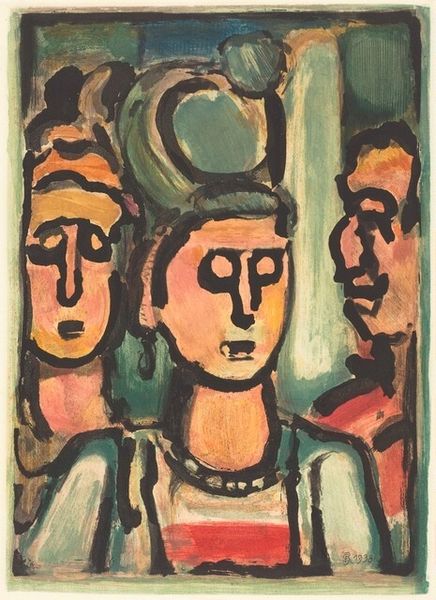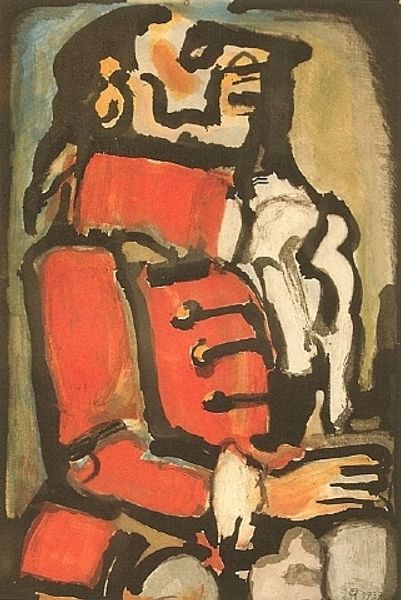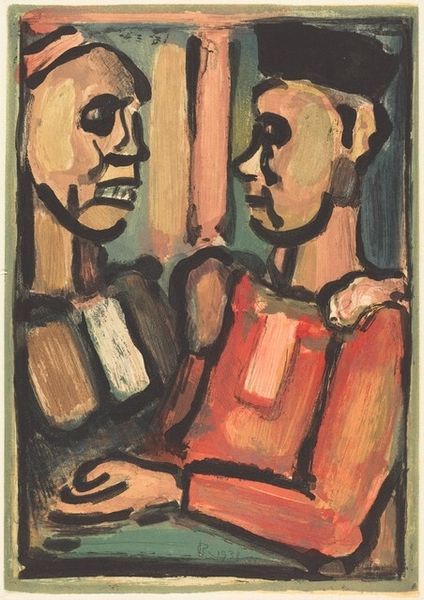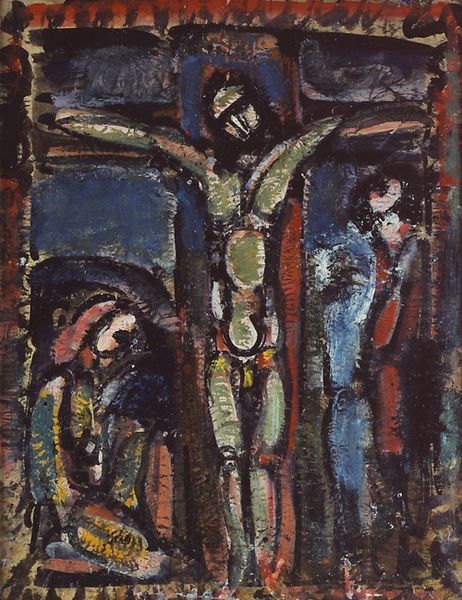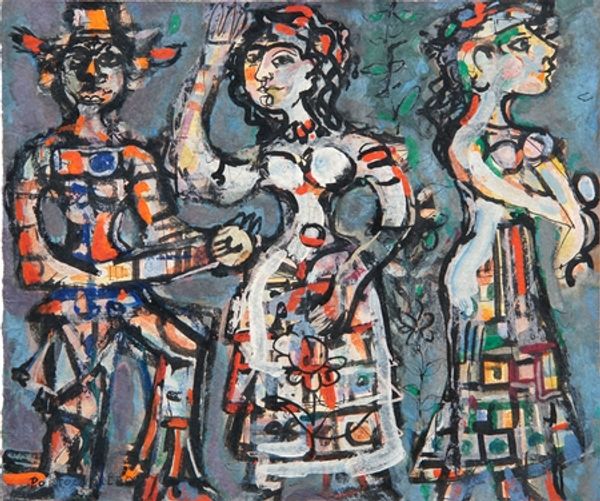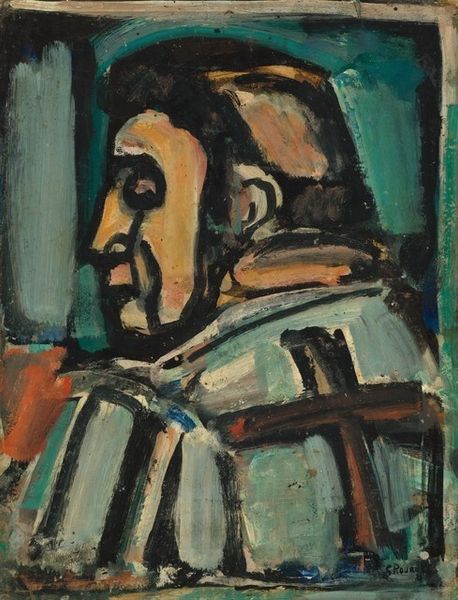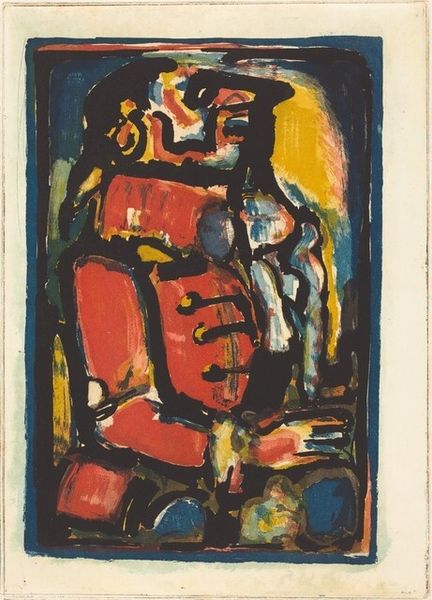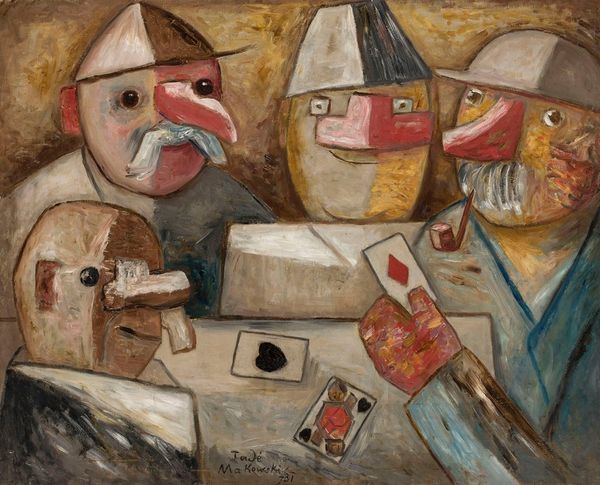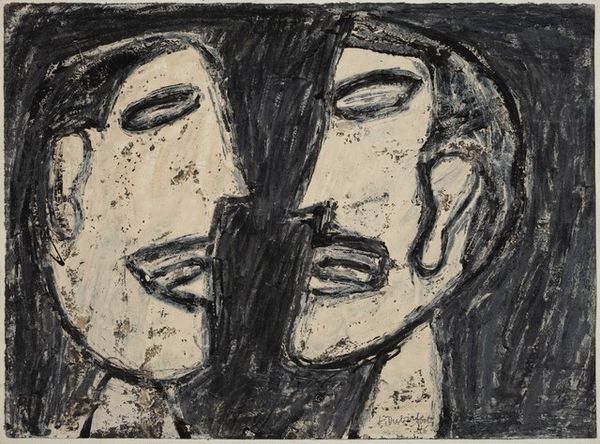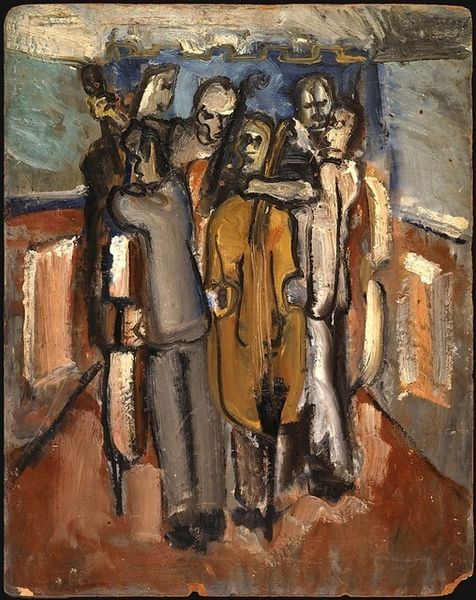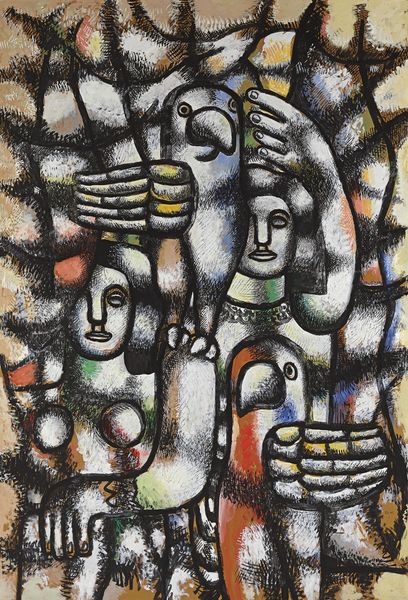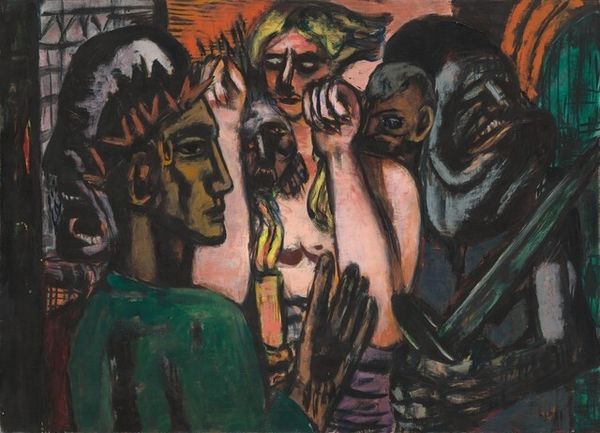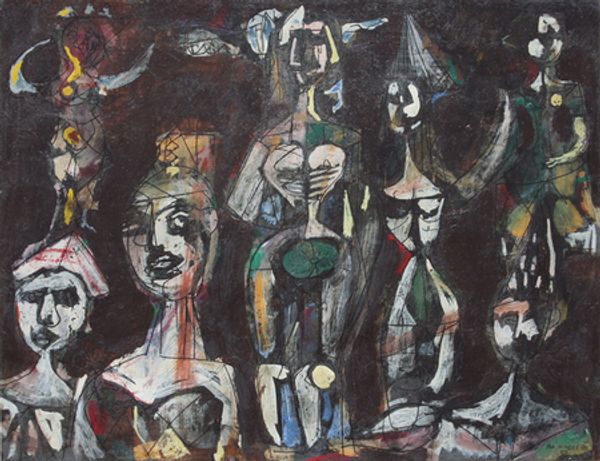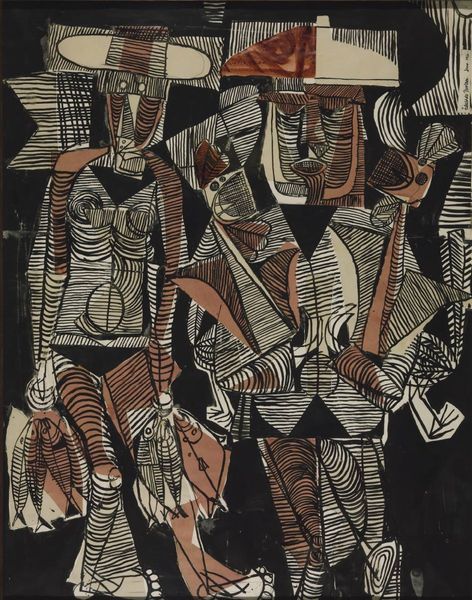
Dimensions: support: 812 x 666 x 37 mm frame: 970 x 820 x 132 mm
Copyright: © ADAGP, Paris and DACS, London 2014 | CC-BY-NC-ND 4.0 DEED, Photo: Tate
Curator: Georges Rouault's "The Three Judges," currently held at the Tate, presents a rather imposing presence, doesn't it? Editor: Absolutely! It's almost claustrophobic. That deep, dark background, those thick, heavy lines…it feels like staring into a moral abyss. Curator: Rouault, born in 1871, frequently depicted judges and legal figures, seeing them as symbols of societal corruption. He was quite critical of institutions. Editor: The faces are so grotesque, yet there's a raw humanity there too. Like looking at broken gargoyles, reflecting our own flawed justice system. Curator: Indeed, his use of color, those vibrant reds against the somber tones, amplifies the emotional intensity, doesn't it? Editor: It makes the piece almost scream. Knowing Rouault's critiques, it makes you ponder the weight of judgement, both human and divine. Curator: It's a powerful work, prompting us to question the nature of justice itself. Editor: Yes, and to consider how we might soften the edges of our own judgements, both on others and ourselves.
Comments
tate 9 months ago
⋮
http://www.tate.org.uk/art/artworks/rouault-the-three-judges-n05146
Join the conversation
Join millions of artists and users on Artera today and experience the ultimate creative platform.
tate 9 months ago
⋮
Rouault was a deeply religious artist whose paintings frequently depicted those at the fringes of society, particularly prostitutes and circus performers. He made several paintings of judges which express his skepticism about systems of human justice. ‘If I have made judges such lamentable figures, it is doubtless because I betrayed the anguish which I feel at the sight of a human being who has to pass judgement on other men’, he said. ‘The judges themselves I could not condemn’. Gallery label, November 2005
